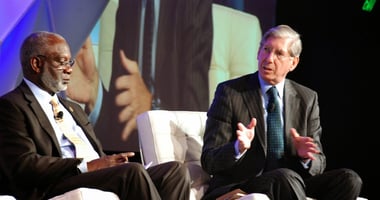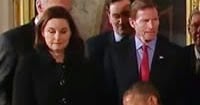President John F. Kennedy’s 1963 Community Mental Health Act was signed 50 years ago, but it...
Former APA President Reflects on the Day of President Kennedy’s Assassination
 |
“The three of us gathered in Mr. Shriver’s office, where wire service reports were given to us.…The first one reported a head wound, and a few minutes later …the one that said the president had expired....”
English also discusses his role in the organization of President Kennedy’s funeral, was personally asked by First Lady Jacqueline Kennedy to view the body of her late husband, and was asked to join world leaders in walking behind the president’s casket from the White House to St. Mathew’s Cathedral.
Since that time, English went on to become one of the most influential leaders in psychiatry. Among many other positions, he was the first psychiatrist to serve as a board member on the Joint Commission for Accreditation of Healthcare Organizations (JCAHO), first president and CEO of the New York Health and Hospital Corporation, and a leading light for psychiatry at the AMA. English currently serves as the Sidney E. Frank Professor and Chair of the Department of Psychiatry and Behavioral Sciences at New York Medical College.
To read the Psychiatric News article of English’s reflection of the day President Kennedy was assassinated, click here. Also see "Joseph T. English, M.D., one hundred twenty-first president, 1992-1993" in the American Journal of Psychiatry.





